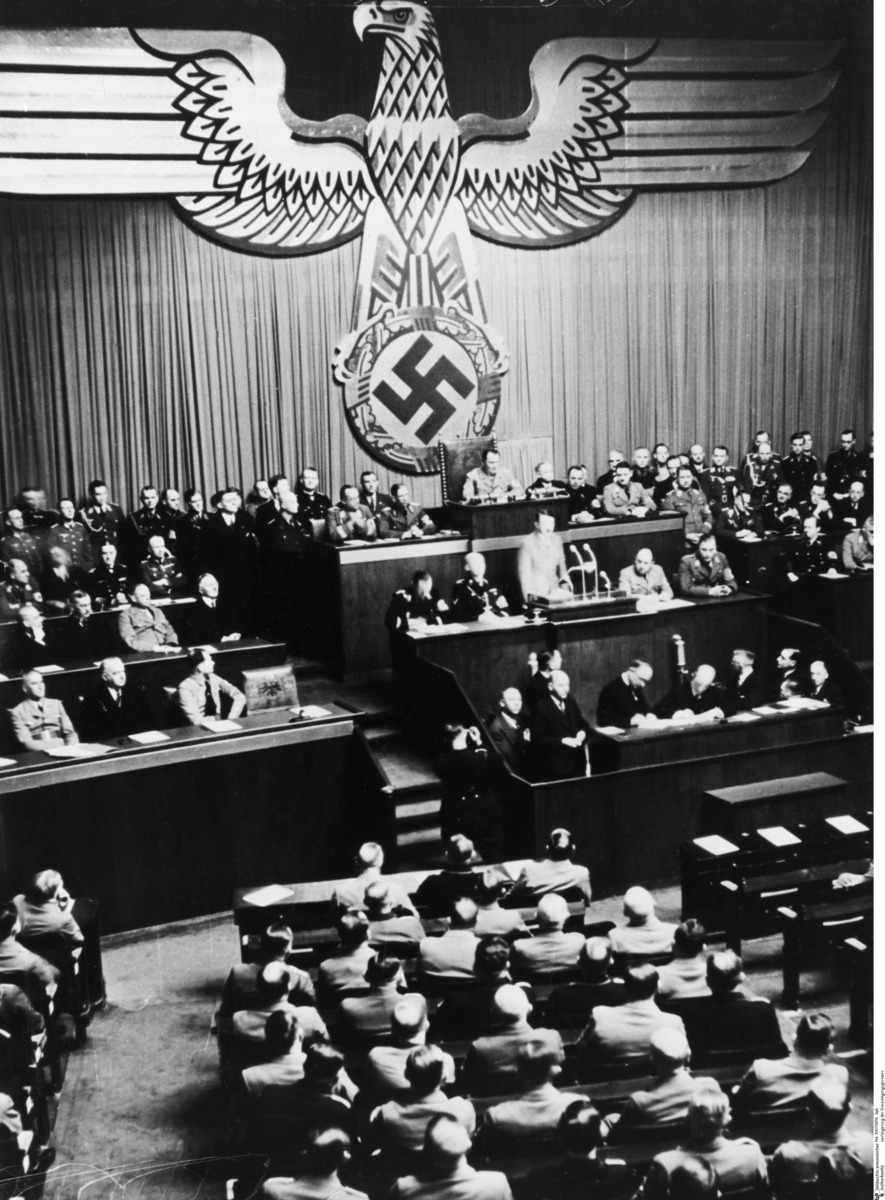Abstract
The “Enabling Act” adopted on March 23, 1933, was initially valid for
four years. During the voting, Hitler had emphasized that the new law
was not tantamount to the abolition of the Reichstag, since he expected
to use this limited authority only in cases of emergency. But, in fact,
Hitler and his cabinet ruled virtually independently from that point on.
In any case, by the end of the year, the NSDAP was the only remaining
political party: all other parties had been banned or had dissolved on
their own. The surviving Reichstag consisted entirely of National
Socialists and served mainly to project an air of legitimacy. In 1937
and 1939, it ratified extensions of the “Enabling Act.” In 1943, Hitler
decreed that the law would remain in effect permanently.
